 I am a lot of things: daughter, sister, wife, social worker, author, and mother to two boys. Becoming a mother to a child with autism changed me in a million different ways, mostly for the better. For almost a decade, I have struggled to be the best parent I can for my son and to help support him in being successful, as well as be there for my other son. I don’t always balance it well, but I always try.
I am a lot of things: daughter, sister, wife, social worker, author, and mother to two boys. Becoming a mother to a child with autism changed me in a million different ways, mostly for the better. For almost a decade, I have struggled to be the best parent I can for my son and to help support him in being successful, as well as be there for my other son. I don’t always balance it well, but I always try.
As parents and caregivers to children with special needs, we are all experiencing this journey in a different way. What works for my family might not work for yours. While our experiences may be different, we all have one thing in common: We all need a strong support system. When I first became a parent to a special needs child, I thought back to the training as a social work student that I got in college. I learned how to help clients measure if they were plugged into their environment (i.e., belong to groups, clubs, church, etc.) and if they felt supported. It’s a really important exercise because there is a strong correlation between a strong support system and a happy/contented individual.
Take a moment to ask yourself these questions:
Do you get as much as you give out to the world around you?
Do you feel supported or pulled in several different directions?
Whether your child has autism, ADD, ADHD, or any other special needs diagnosis, you need support. You need help. Have you ever seen the movie, “28 days,” with Sandra Bullock? She is in rehab for drug and alcohol abuse and, as part of her treatment, she is forced to wear a sign around her neck that says, “Confront me if I don’t ask for help.” Consider this my reminder to you to ask for help, plug into the world around you, and make lasting connections with people who support you.
I could write a book about all the ways to do this but, for today, I just want to tell you about three types of friends. These are the ones who can help support you during these challenging times spent raising special needs kids, and having them saved my sanity.
- The ‘Been There, Done That’ Friend
This is the friend who has a child or multiple children with special needs who are older than your child. This is the friend who knows the ropes for getting services from your state or the school system, the best therapy places, and the tips and tricks to get your insurance to pay for stuff. This friend will help you learn the language that will make you an effective advocate for your child. They are also the one that gives you hope that things might get better. Hope is important.
My best friend has been instrumental in helping me learn about all the services that are out there. She validates my experience, offers a shoulder for me to cry on, and normalizes the feelings and emotions that come up. This is a vital friend to have!
- The ‘Same Stage’ Friend
This friend has a special needs kid who is the same age and/or gender as your own. This is the friend who is struggling with the same or similar struggles that you are, and they aren’t going to judge you or your kid when they do something that is considered socially unexcitable. This may be a mom, dad, or grandma that you met at a meeting, in a therapy waiting room, or in an online group. I have a few friends that fit this mold. We discuss things like problems with teachers, school districts, and insurance. You may not cry on their shoulders, but they wouldn’t bat an eye if you did. They get it! No judgement; just support.
These are the best kinds of friends to ask for ideas to problem-solve the newest challenge you and your child might be going through. They let you know about the free baseball games for children with autism or the autism-friendly restaurants or businesses. They know that doing simple things like getting a haircut or going to the dentist can be a scary prospect, and that having a plan with a good place to go ahead of time makes a world of difference.
- The Ally
This is the friend who loves you and your kid as is, even though they don’t have a child with special needs. This is the best friend of all of them to have, because their kids are often understanding and cool to your kid, too. This is the family that shows up to your kid’s birthday party when all of the classmates that were invited didn’t come. This friend does playdates on a regular basis.
I am very blessed to have a few friends who fit this bill. They are my coffee buddies and my weekly playdate: my make-me-laugh friends. Their same-age, neurotypical child also helps me to see what behaviors and issues are just “normal” age-related things, and not anything associated with my son’s diagnosis. The “ally” is the friend who kidnaps me and takes me out for a drink or a cup of coffee. I love this friend.
Easier Said Than Done
It is very hard to build up a support system. It takes time and, yes, energy to cultivate these relationships. It hasn’t been easy for me, but it has been so rewarding and worth it in the end. The important thing to remember is to step outside of your world and talk to other people as much as you can, even if it is just over the Internet. Though do try and get out of the house as often as you can, too!
Remember that you are important and need to be cared for. Don’t give up trying to find ways to care for yourself, as well as your child.
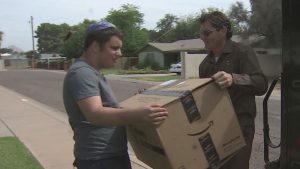 Do you know that giddy feeling that you get when the UPS man drops a package off at your door? Even if you know exactly what’s in it, it can still feel like your birthday. So you’ll understand why 14-year-old Asher Schnitzer loves the excitement of a UPS delivery.
Do you know that giddy feeling that you get when the UPS man drops a package off at your door? Even if you know exactly what’s in it, it can still feel like your birthday. So you’ll understand why 14-year-old Asher Schnitzer loves the excitement of a UPS delivery.


 It’s been just over a year since my 7-year-old daughter’s high-functioning autism diagnosis, but the writing was on the wall long before it was official. Between autism and having three kids in four years, it feels like I’m a completely different person than the one who embarked on motherhood in 2009. I’m still very much a novice training on the job, and when it comes to autism I’ve had to learn plenty of lessons the hard way. Here are a few of them.
It’s been just over a year since my 7-year-old daughter’s high-functioning autism diagnosis, but the writing was on the wall long before it was official. Between autism and having three kids in four years, it feels like I’m a completely different person than the one who embarked on motherhood in 2009. I’m still very much a novice training on the job, and when it comes to autism I’ve had to learn plenty of lessons the hard way. Here are a few of them.
 Although Liam Smith suffered his first-ever defeat to Saul ‘Canelo’ Álvarez in the recent WBO light middleweight title bout AT&T Stadium in Dallas, he’s far from a loser in our eyes. Liam, along with older brothers Paul and Stephen, and younger brother Callum, is part of a dynamic professional boxing family hailing from Liverpool, England. In 2013, the family made history when three of the brothers claimed the British light-middleweight (Liam), super-featherweight (Stephen), and super-middleweight (Paul) belts at the same time. Younger brother Callum is also a boxer to be reckoned with, with many experts saying he’s the best of the foursome.
Although Liam Smith suffered his first-ever defeat to Saul ‘Canelo’ Álvarez in the recent WBO light middleweight title bout AT&T Stadium in Dallas, he’s far from a loser in our eyes. Liam, along with older brothers Paul and Stephen, and younger brother Callum, is part of a dynamic professional boxing family hailing from Liverpool, England. In 2013, the family made history when three of the brothers claimed the British light-middleweight (Liam), super-featherweight (Stephen), and super-middleweight (Paul) belts at the same time. Younger brother Callum is also a boxer to be reckoned with, with many experts saying he’s the best of the foursome.

 I am a lot of things: daughter, sister, wife, social worker, author, and mother to two boys. Becoming a mother to a child with autism changed me in a million different ways, mostly for the better. For almost a decade, I have struggled to be the best parent I can for my son and to help support him in being successful, as well as be there for my other son. I don’t always balance it well, but I always try.
I am a lot of things: daughter, sister, wife, social worker, author, and mother to two boys. Becoming a mother to a child with autism changed me in a million different ways, mostly for the better. For almost a decade, I have struggled to be the best parent I can for my son and to help support him in being successful, as well as be there for my other son. I don’t always balance it well, but I always try.
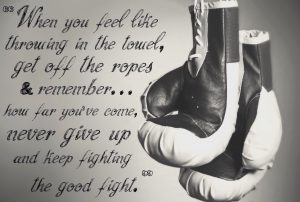

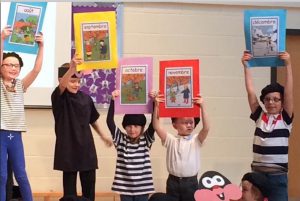
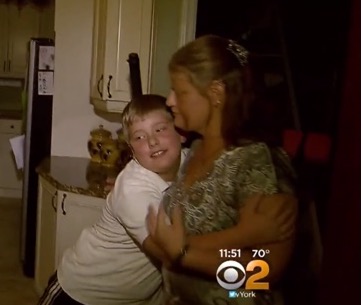
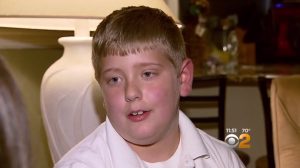 Unfortunately, vehicle fires on the Garden State Parkway aren’t all that rare. Yesterday, however, a small school bus carrying seven children with special needs caught on fire along the major highway. Luckily, a potential disaster was averted thanks to one passenger’s sensory skills.
Unfortunately, vehicle fires on the Garden State Parkway aren’t all that rare. Yesterday, however, a small school bus carrying seven children with special needs caught on fire along the major highway. Luckily, a potential disaster was averted thanks to one passenger’s sensory skills.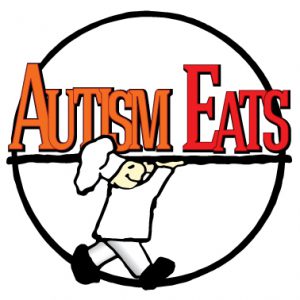


 When a friend or relative’s child is diagnosed with autism, it can be awkward and uncomfortable. Many people just don’t know how to respond.
When a friend or relative’s child is diagnosed with autism, it can be awkward and uncomfortable. Many people just don’t know how to respond.
 There are many days where raising two boys on the spectrum is challenging. I have days where I hold back the tears every single minute of the day. I still have the days where I am just so angry that my children have so many challenges. I still have my bad days six years into our journey, and I probably always will. I am sure it is just part of being a special needs parent.
There are many days where raising two boys on the spectrum is challenging. I have days where I hold back the tears every single minute of the day. I still have the days where I am just so angry that my children have so many challenges. I still have my bad days six years into our journey, and I probably always will. I am sure it is just part of being a special needs parent.